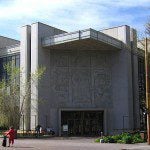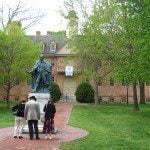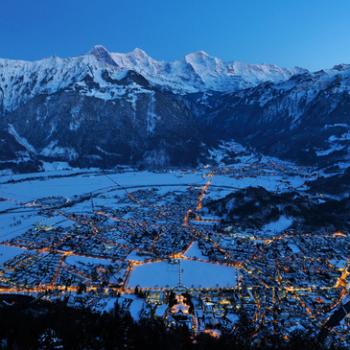
(Wikimedia Commons public domain photograph)
A neighbor, good friend, and valued Interpreter Foundation volunteer sent me the extremely interesting post below. With his generous permission, I share it here:
A Native American Perspective on Juneteenth
by Tom Pittman
Given that North America had about 388,000 African slaves, and at least 2.5 million Native American slaves, the abolition of slavery in the United States of America is an important matter in Native American history.
According to the Trans-Atlantic Slave Trade Database kept by professors David Eltis and David Richardson:
• About 12.5 million Africans were shipped to the New World
• About 10.7 million Africans survived the voyage
• About 388,000 Africans were shipped to North America.
And according to Andrés Reséndez, a historian at the University of California Davis:
• Between 2.5 million and 5 million Native Americans were enslaved in the United States.
European colonizers didn’t just steal Africans from their homelands, they stole homelands from indigenous Americans. And I guess we all were candidates for slavery.
On September 22, 1862 President Abraham Lincoln’s Emancipation Proclamation theoretically ended slavery in the United States.
On January 31, 1863 the 13th Amendment officially ended slavery in the United States.
On June 19, 1865 Major General Gordon Granger’s order to the people of Texas began to actually end of the practice of slavery.
Most people see these dates as milestones in African American history, but they all were important events in Native American history as well.
For instance, I am a member of the Tlingit tribe of Southeast Alaska. I am of the Raven moiety, and of the T’akdeintaan (Sea Pigeon) clan. My Tlingit name is Koohook. My mother raised me in the ways of our people: I harvested herring eggs, fished, hunted, wore regalia, danced, sang, ate Tlingit foods, and learned what my mom called “Native values”.
But there was a time when Native Values were different than the values I was taught.
My tribe is one of the indigenous tribes of America that used to own slaves.
In fact, it is estimated that at the time slaves were freed in the United States, about one-third of the Tlingit population were slaves.
I guess that means there is about a 33% chance that I am a descendant of slaves. Perhaps my ancestors owned slaves — I don’t know.
In 1776, America’s Declaration of Independence declared that “all men are created equal” and “are endowed by their Creator with certain unalienable Rights.”
But consider how reluctant Americans have historically been in believing in equality, especially for Native Americans.
• 1869: Black Americans given the right to vote.
• 1920: Women given the right to vote.
• 1924: Native Americans win a CONDITIONAL right to citizenship to be decided state by state.
• 1962: New Mexico finally became the 50th state to guarantee Native Americans the right to vote.
An estimated 130 million Native Americans were killed as European colonizers made way for the founding of United States of America.
For perspective, the current population of the U.S. is 328 million.
More than 10 times more Native Americans were killed than the number of Africans taken to be slaves in North or South America combined.
This is a great country; I am proud to be an American.
But I will be prouder still when *all* Americans finally and completely believe that all men are created equal, and are endowed by their Creator with certain unalienable Rights.
Thanks for listening.
Gunalchéesh.
References:
https://www.history.com/news/native-american-voting-rights-citizenship
https://www.pbs.org/wnet/african-americans-many-rivers-to-cross/history/what-is-juneteenth/
https://www.sealaskaheritage.org/node/553











